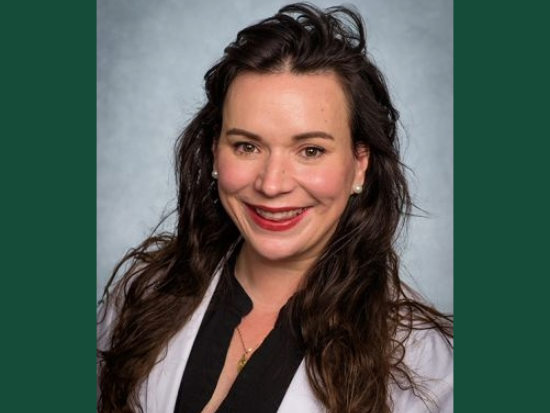 The UAB Department of Neurology welcomed Melissa J. Greenfield, Psy.D., to the faculty as an assistant professor in July 2024.
The UAB Department of Neurology welcomed Melissa J. Greenfield, Psy.D., to the faculty as an assistant professor in July 2024.
Greenfield completed her undergraduate studies at Oregon State University and earned a Bachelor of Science in Political Science. She later pursued a Master of Science in Industrial and Organizational Psychology from Southern New Hampshire University. Greenfield then continued her academic journey, obtaining a Doctorate in Clinical Psychology from Xavier University of Louisiana.
For nearly a decade before graduate school, she worked in private insurance, adjudicating disability and worker’s compensation claims. She gained extensive medical and pharmacological training and forensic and systems knowledge while working on multidisciplinary teams to support claimant functional rehabilitation.
Before joining UAB as an intern, Greenfield received clinical training in New Orleans and its surrounding areas, including at the Louisiana State University Department of Psychiatry and Behavioral Medicine. She primarily worked with medical psychologists and neuropsychologists, focusing on the neuropsychological assessment and intervention of neurodevelopmental and neurodegenerative disorders. Prior to joining the UAB Department of Neurology, Greenfield was housed in the Department of Psychiatry, having worked across the hospital focused on consultation-liaison psychology assessing and treating neuropsychiatric symptoms in complex medical presentations.
This work led to her now specialized focus on the epilepsy and FND patient populations. She also contributed to the Conflict Response Team (CRT) and UAB Cares to assist with behavioral disturbances and/or management. Greenfield held the Associate Training Director role, as well as taught and supervised graduate and medical students, interns, and residents.
Greenfield shares her deep passion for her new role and enthusiasm for contributing to the academic/scientific community.
What inspired you to pursue a career in this field?
Greenfield: I am a classically trained ballet dancer, raised with a focus on behaviorism and generativity within the Kaiser health care system, all of which emphasized holistic, whole-person wellness. I believe in leveraging one's knowledge and using the whole self to explore and achieve a hierarchy of needs. As a claim adjuster, I became increasingly aware of the siloed nature of the systems responsible for helping vulnerable populations return to productive livelihoods. This realization inspired me to become an integral part of supporting individuals’ restorative and rehabilitative journeys through whole-person, solution-focused behavioral medicine interventions.
What aspects of your new role here are you most excited about?
Greenfield: I look forward to being an integral part of the Department of Neurology, specifically the Division of Epilepsy, to support the medical care teams and the system in improving patient outcomes. Through this lens, I am eager to apply best practices in assessment and intervention to the populations I serve to bring excellence in health service psychology delivery.
What is your primary area of expertise, and what sparked your passion for it?
Greenfield: I am a health service psychologist with primary expertise in functional contextualism rooted in behavioral science and analysis. This approach emphasizes predicting and influencing thoughts, feelings, and behaviors by focusing on changing variables within their context. Over the past four years, I have concentrated my clinical work on complex neuropsychiatric symptom presentations across medical conditions primarily focusing on neurodevelopmental disorders, functional neurological disorders, and epilepsy. I frequently work with patients who present with chronic medical conditions as well as behavioral disturbances. My passion for these populations stems from my focus on understanding brain-body bidirectional feedback systems. This approach guides the exploration of an individual’s unique biological self across various ecological systems, allowing for modifying thoughts, feelings, and behaviors to achieve more desirable life outcomes.
What are your goals for impacting teaching and patient care in this role?
Greenfield: I aim to support all aspects of patient care delivery within the Department of Neurology. I hope to do this through direct clinical care by applying evidence-based assessment and interventions leveraging collaborative engagement and consultation. I look forward to continuing to teach the fundamentals of health service psychology, including behavioral medicine and analysis, as it applies to medically complex populations. Finally, I am eager to continue supporting psychological training at all levels to offer solution-focused, person-centered supervision and research opportunities.